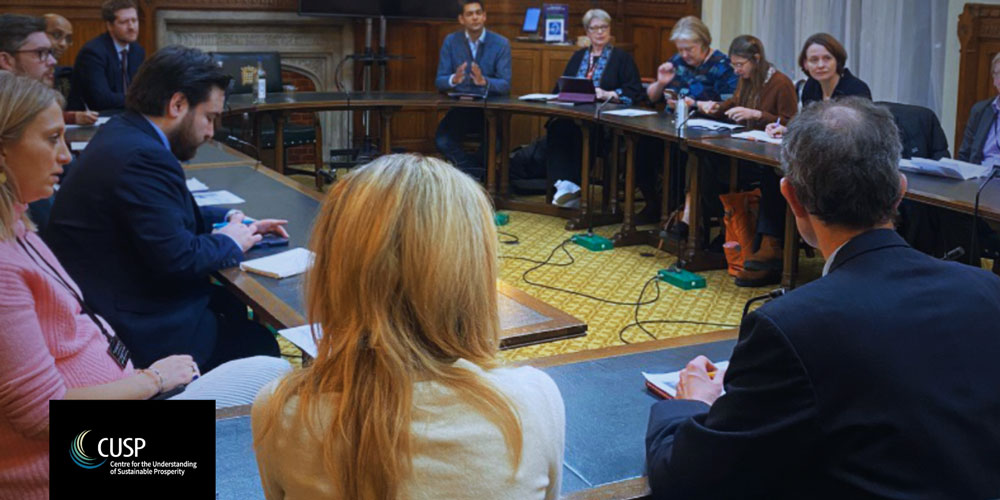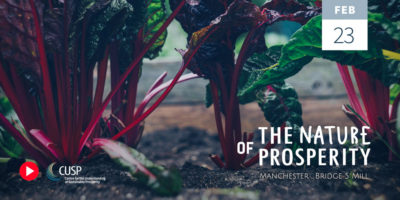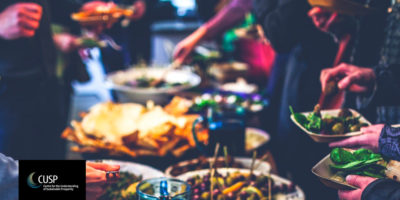Transforming the UK food system | Policy event with the APPG for Social Enterprise
CUSP researchers presenting research from UK food system transformation project in roundtable discussion at Houses of Parliament
16 January 2024

UK food systems are under threat. Vulnerabilities in supply chains have been exposed by the emerging effects of climate change, global trading instabilities, and regressive labour practices. For consumers, poor diets have become endemic and a leading cause of preventable disease, with increasing prices and pushing people into food poverty.
Business can play a key role in addressing the failures in our food system. A new collaborative research project led by CUSP researchers at Middlesex University and the University of Surrey, seeks to explore the contribution of social enterprises (SE) to the delivery of healthy, sustainable, and inclusive local food systems. Our researchers were invited by Members of Parliament from the All-Party Parliamentary Group for Social Enterprise to participate in a roundtable discussion on the subject, alongside politicians, policy makers and practitioners.
Fergus Lyon, Ian Vickers, Kate Burningham, Anastasia Loukianov, and Doirean Wilson shared their insights into the significant potential of social enterprises in shifting the food system and promoting healthy diets. With responses from fellow SE project partners, including Selby Trust in Tottenham and The Ubele Initiative in Haringey, MPs, members of the House of Lords, and other attendees from government departments and national food organisations then engaged in discussions about the research’s wider implications—also for their own respective activities.
Our early project findings underscore that conventional ‘top-down’ approaches to addressing poor diets and low-quality food can often be perceived as patronising and stigmatising. Social enterprises, as trading businesses with a core social purpose, demonstrate the ability to tap into local community insights, developing innovative solutions that are sensitive to local cultural preferences and challenges. Additionally, our research sheds light on the creative approaches to tackling poor diet and food poverty, as demonstrated by pioneering organisations offering a diverse range of services, such as nursery schools (like the London Early Years Foundation), Community Centres (like Selby Trust), and health and wellbeing services (like Social adVentures).
The dialogue with policy makers yielded insights into how central and local government can enhance collaboration with social enterprises, including extending healthier and more sustainable food provisions to schools, hospitals, and prisons. Attending social enterprises also voiced a call for increased government support for local food initiatives, improved accessibility to existing grants, and advice.
The Middlesex-led research programme, in collaboration with the University of Surrey, Glasgow Caledonian University, Shared Assets, and six social enterprise partners from across the UK, is making strides in reimagining the UK food system. Project lead Prof Fergus Lyon expressed his honour at the invitation to present to MPs:
“There was lots of interest about the role that social enterprises can play by helping us to rethink a UK food system that is widely recognised as broken. It was also a great opportunity to bring together a range of thinkers on food issues and further discuss how social enterprises can be part of the solution”.
Upcoming workshops
Together with our project partners at Shared Assets, we are currently planning a series of workshops for social enterprises operating in the food system, with events taking place in England (Sheffield, 31 Jan 2024), Wales (Online, 1 Feb 2024), and Scotland (Glasgow, 5 Feb 2024). If you run a social enterprise and find this relevant, please join us at the event for your region to learn from your peers and help co-develop a good practice guide for social enterprises aiming to scale their work on healthy and sustainable food.



